Our Clients
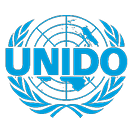
Policy Assessment
United Nations Industrial Dev Organisation – UNIDO (EST. 1966)
UNIDO is the specialized agency of the United Nations that promotes industrial development for poverty reduction, inclusive globalization and environmental sustainability.
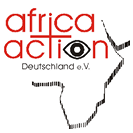
Feasability Study
Africa Action (EST. 1983)
Africa Action is a non- profit volunteer organization who works in 12 countries in Africa, especially helping to disabled people in the field of health, education, training and inclusion since 1983.

Women’s Policy Review
CARE (EST.1945)
CARE is a global leader within a worldwide movement dedicated to ending poverty. We are known everywhere for our unshakeable commitment to the dignity of people.
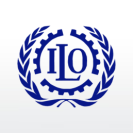
Evaluation and Skill Management
International Labour Organisation – ILO (Est.1919)
The only tripartite U.N. agency, since 1919 the ILO brings together governments, employers and workers of 187 member States , to set labour standards, develop policies and devise programmes promoting decent work for all women and men.
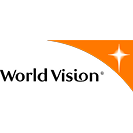
Gender Equality & Social Inclusion Toolkit Development
World Vision (EST. 1950)
World Vision International is an Evangelical Christian humanitarian aid, development, and advocacy organization. It prefers to present itself as interdenominational and also employs staff from non-evangelical Christian denominations.
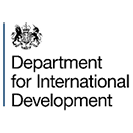
Gender Transformative Policy Review
Department for International Development
The Department for International Development was the government department of the United Kingdom responsible for administering foreign aid. The goal of the department was “to promote sustainable development and eliminate world poverty”.
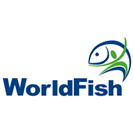
Gender & Social Risk Analysis
Worldfish (EST. 1975)
WorldFish is an international, nonprofit research and innovation institution that creates, advances and translates aquatic food systems science into scalable solutions for healthy people and planet. Its research data, evidence and insights shape practices, policies and investment decisions to end hunger and advance sustainable development in low- and middle-income countries.
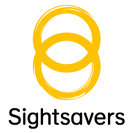
Programmic Assessment
Sightsavers (EST.1950)
Vision of Sightsavers is a world where no one is blind from avoidable causes, and where people with disabilities participate equally in society. They prevent sight loss and avoidable blindness in some of the poorest parts of the world by treating conditions such as cataracts and fighting debilitating eye diseases.
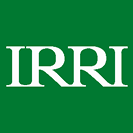
Youth Strategy
International rice research institute – IRRI (EST.1960)
The International Rice Research Institute (IRRI) is the world’s premier research organization dedicated to reducing poverty and hunger through rice science; improving the health and welfare of rice farmers and consumers; and protecting the rice-growing environment for future generations.
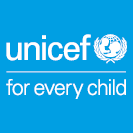
Evaluation
UNICEF (EST. 1946)
UNICEF works in the world’s toughest places to reach the most disadvantaged children and adolescents – and to protect the rights of every child, everywhere. Across more than 190 countries and territories, they do whatever it takes to help children survive, thrive and fulfill their potential, from early childhood through adolescence.
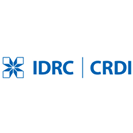
Policy Mapping
International Dev. Research Centre – IDRC (EST. 1970)
IDRC was established by an act of Canada’s parliament in 1970. to initiate, encourage, support, and conduct research into the problems of the developing regions of the world and into the means for applying and adapting scientific, technical, and other knowledge to the economic and social advancement of those regions.
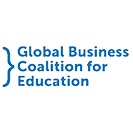
Disability Inclusion Review
Global Bussiness for eEducation
The Global Business Coalition for Education is a movement of businesses committed to ending the global education crisis and unleashing the potential of the next generation. Their mission is to ensure that every child has the best start in life, a safe place to learn, and skills for the future.
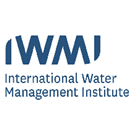
Authored Book Chapter
International Water Management Institute – IWMI (EST- 1985)
IWMI is a research-for-development (R4D) organization, with offices in 13 countries and a global network of scientists operating in more than 30 countries. For over three decades, their research results have led to changes in water management that have contributed to social and economic development.
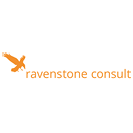
Data Collection For Save The Children
Ravenstone Consult
Ravenstone Consult is a research, analysis, policy development and programme management consultancy group offering expertise across the humanitarian and development sector. They have a special focus on migration, refugees, vulnerability and children on the move, offering a range of services to assist public and private interests in the sector.
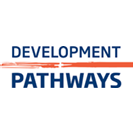
Evaluation
Development Pathways (EST. 2010)
Development Pathways is committed to bold and innovative thinking on social policy. Their aim is to provide creative, evidence-based, context-specific solutions to the social and economic policy challenges facing developing countries. They combine country-specific social, economic and political analysis with lessons learnt from their collective international experience.
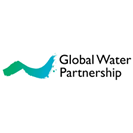
Gender Analysis
Global Water Partnership – GWP (EST. 1996)
GWP mobilises action on the global water crisis through a unique combination of social capital, shared values, credibility within the global water community, bottom-up orientation, and expertise. A network of networks, GWP ensure the ‘voices of water’ can influence local, national, regional, and global development priorities. GWP is committed to our role as a neutral convener and respected for our focus on inclusiveness and sustainability.
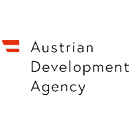
Data Collection For Save The Children
Austrian Development Agency ( est. 2004)
Combating poverty, ensuring peace and preserving the environment: These are the three major concerns of the Austrian Development Agency (ADA), the operational unit of Austrian Development Cooperation. ADA currently funds projects and programmes with a total volume of more than 550 million euros to improve living conditions in developing countries.
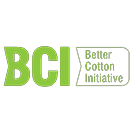
Behaviour Change
Better Cotton Initiative
Better Cotton Initiative (BCI) — a global not-for-profit organisation — is the largest cotton sustainability programme in the world. Together with their partners they provide training on more sustainable farming practices to more than 2.3 million cotton farmers in 23 countries. In the 2018-19 cotton
season, licensed BCI Farmers produced more than5.6 million metric tonnes of ‘Better Cotton’ – that accounts for around 22% of global cotton production.
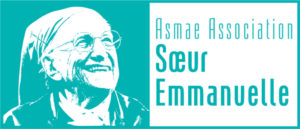
Asmae
Asmae is an officially recognised independent, and secular non-profit organisation. It was created in 1980 by Sister Emmanuelle to protect and promote children’s right to education and protection from all forms of abuse, especially for the most vulnerable around the world. Operating in 8 countries : Egypt, Lebanon, Philippines, Madagascar, Burkina Faso, Ivory Coast, India, France. Asmae aims to support the local actors who strive to promote the autonomy of the most vulnerable children through education and protection.

SOS Children’s Villages
SOS Children’s Villages is an independent, non-governmental, nonprofit international development organization headquartered in Innsbruck, Austria.
The organization provides humanitarian and developmental assistance to children in need and protects their interests and rights around the world.
Today, SOS Children’s Villages is active in 135 countries and territories worldwide. SOS Children’s Villages provide alternative families to children without adequate parental care.

DW (Deutsche Welle)
DW Akademie is Deutsche Welle’s centre for international media development, journalism training, and knowledge transfer. Their projects strengthen the human right to freedom of expression and unhindered access to information. They empower people worldwide to make independent decisions based on reliable facts and constructive dialogue. They are a strategic partner of the German Federal Ministry for Economic Cooperation and Development. They also receive funding from the Federal Foreign Office and the European Union and are active in more than 70 developing countries and emerging economies.
